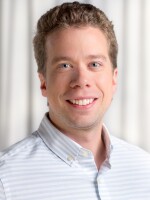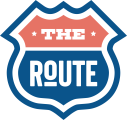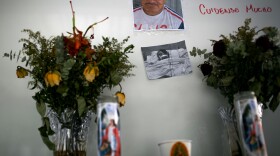
Danny Hajek
-
Said Noor was 11 in 2001, growing up in an Afghan village. He later served as a U.S. Army interpreter, moved to Texas and became a U.S. citizen. Then he had to help rescue his family from the Taliban.
-
"Every day, you can see an increase in the Taliban's presence," an Afghan who worked with the U.S. tells NPR. "What am I going to do after September? ... Am I going to even be alive by December?"
-
For four months last year, Dr. Angela Chen only saw her child through a window. A year into the global pandemic, the view is a different, but it's impossible to forget the memories of last spring.
-
Paulino Ramos spent more than a decade working demolition jobs in California to support his family in Mexico. The day laborers he worked with fear they, too, may be more vulnerable to the coronavirus.
-
The spread of COVID-19, the ensuing economic crisis and the reckoning around social injustice has made 2020 a year like none other. NPR wanted to know how these events might shape political choices.
-
Patients knew José Gabriel López-Plascencia as "the doctor that served the poor." He spent over 60 years caring for low-income families left out of the healthcare system in Phoenix.
-
Javier Quiroz Castro and Estefania Betancourt Macias are nurses on the frontlines of the pandemic. They're also DACA recipients, awaiting the Supreme Court's decision on the fate of the DACA program.
-
Cathy Cody was born and raised in Albany, Ga., a close-knit community pushed to the edge by the outbreak. Albany has seen one of the nation's highest rates of infection, and she's found a way to help.
-
The bookstore called Source of Knowledge in Newark was a vibrant part of the community before the coronavirus outbreak. It's one of two African American-owned bookstores left in the state.
-
Andrea Owens-White is a florist in Albany, Ga., in one of the hardest hardest hit areas of the coronavirus pandemic. Owens-White, who tested positive for COVID-19, was forced to file for unemployment.









